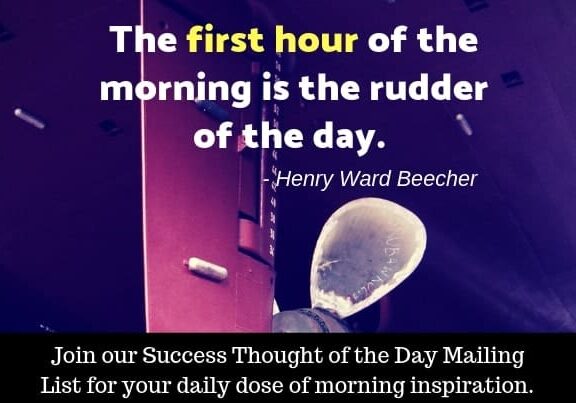10 Study Habits To Help You Slay Your Academic Workload
Learning to manage your academic workload effectively can be challenging at any stage—whether you’re in high school or college or balancing adult education with other responsibilities.
Juggling assignments, exams, and extracurricular activities tends to feel overwhelming, but finding effective strategies is essential for reducing stress and achieving your goals.
This article provides practical techniques to help you manage your workload, enhance your performance, and maintain your well-being throughout the academic journey.
Having these tools under your belt will make your task less daunting and help you get more done. No matter what level you are at in your academic journey, everyone can benefit from seamless workload management.
With improved organization skills, clear priorities, and balanced time management, you’ll notice greater efficiency and less burnout. Adopt these strategies now to transform stress into productivity and elevate your academic experience.
Are you ready to get control over your academic workload? Let’s go!
Understanding Academic Workload
Academic workload encompasses everything from assignments and projects to exams and extracurricular activities. It involves balancing after-school programs with test preparation for high school students, and extensive reading and papers alongside internships for college students. Adult learners face unique challenges in managing work, family obligations, and academic demands. Despite these differences, everyday struggles such as time constraints, competing priorities, and burnout affect all learners. Recognizing these challenges is the first step toward overcoming them.
Components of Academic Workload
Academic workload includes various interconnected elements, such as:
- Coursework and Assignments
-
- Reading and Research: Completing assigned readings, gathering information, and conducting research for projects or essays.
- Homework: Regular assignments designed to reinforce classroom learning.
- Projects and Papers: Tasks that involve long-term planning, comprehensive writing, and in-depth critical analysis.
- Class Attendance and Participation
-
- Lectures and Seminars: Time spent in scheduled classes, discussions, or presentations.
- Active Participation: Engaging in group discussions, asking questions, or contributing to collaborative tasks.
- Study and Exam Preparation
-
- Self-Study: Reviewing notes, textbooks, or supplementary materials to solidify understanding.
- Exam Revision: Preparing for tests or assessments through focused study sessions.
- Collaborative Work
-
- Group Projects: Collaborating with peers on shared assignments or presentations.
- Study Groups: Meeting with classmates to review material or solve problems together.
- Practical or Experiential Learning
-
- Laboratory Work: Carrying out experiments or engaging in practical activities within scientific or technical disciplines.
- Fieldwork: Participating in off-campus research or practical experiences.
- Internships or Practicums: Gaining real-world experience in a professional setting as part of academic requirements.
- Co-Curricular Activities
- Extracurricular Engagement: Manage academic commitments with participation in clubs, sports, or other school-related activities.
- Workshops and Seminars: Attending optional events to enhance learning or skills.
- Administrative Responsibilities
- Course Registration: Managing schedules, choosing classes, and fulfilling prerequisites.
- Advisor Meetings: Consulting with academic advisors or mentors for guidance.
- Personal Development and Reflection
-
-
- Skill Building: Developing competencies like time management, organization, and critical thinking.
- Goal Setting: Evaluating academic progress and strategizing for future successes, thus creating your goal.
-
- Emotional and Mental Management
-
- Stress Management: Coping with academic pressures and maintaining mental well-being.
- Seeking Help: Access tutoring, counseling, or academic support services when needed.
- Educator’s Workload (if applicable)
-
- Lesson Planning: Preparing instructional materials and teaching aids.
- Grading and Feedback: Assessing student work and providing constructive input.
- Research and Publication: Pursuing scholarly research or writing to contribute to their field.
Now that we’ve explored the key components of academic workload, we must recognize that not all students face the same challenges. High schoolers, college students, and adult learners all experience workload management differently based on their level of independence, responsibilities, and external commitments. The table below highlights these key differences and how they impact workload management.
Key Differences in Workload Across Levels
Aspect |
High School |
College |
Returning Adults |
Structure |
Rigid schedule, teacher-led |
Flexible, student-led |
Very flexible, self-directed |
Subjects |
General education |
Specialized fields + general ed |
Career-focused, practical application |
Assessment Types |
Frequent, small tasks |
Larger, fewer tasks |
Practical, real-world projects |
External Responsibilities |
Minimal |
Some (work, internships) |
Significant (family, job, etc.) |
Technology Use |
Integrated into classrooms |
High reliance (e.g., LMS, software) |
It will require adaptation for some |
Support Systems |
Teachers, parents, peers |
Professors, advisors, peers |
Limited institutional, self-reliance |
Assessing Your Current Workload
Assessing your current workload is essential to improving productivity and maintaining balance. Before implementing new strategies, take time to determine your current workload.
-
Keep a workload diary to track assignments, due dates, and study sessions. Over time, this will help you identify patterns and pinpoint your busiest periods.
-
Reflect on your time management habits—are they helping or hindering your productivity?
-
Evaluate how much time tasks realistically require and whether you’re overcommitting in certain areas.
-
Acknowledge your strengths and weaknesses to create a solid foundation for improvement.
By understanding your workload and habits, you can make informed adjustments that boost efficiency and reduce stress.
Strategies for Time Management
Self-assessment will help you reflect on your current habits and techniques for studying and completing assignments. This way, you can recognize personal strengths and weaknesses in managing your workload and seek ways to manage it more effectively and sharpen your time management skills.
Effective time management is crucial for handling academic responsibilities. Start by prioritizing tasks. Use tools like the Eisenhower Matrix to separate urgent tasks from important ones or create a daily priority list. Techniques like the Pomodoro Method can help you stay focused by breaking work into manageable intervals with short breaks.
Scheduling is equally essential. Create a study calendar outlining assignments, exams, and deadlines. Dedicate specific time blocks for focused work and periodic breaks to recharge. Digital tools like Google Calendar and task management apps can streamline your scheduling, while physical planners offer a tangible way to organize tasks.
Developing Productive Study Habits
A productive study environment is essential. Set up a dedicated, distraction-free workspace with all the materials you need. Engage in active learning by summarizing notes, creating flashcards, or using concept maps. Joining study groups can foster collaboration and deepen understanding. Regular review sessions, self-testing, and seeking feedback from instructors or peers will reinforce your learning.
- Set Clear Goals: Define specific, measurable objectives for each study session to stay focused and motivated.
- Create a Dedicated Study Space: Choose a quiet, clutter-free area with minimal distractions to enhance concentration.
- Establish a Routine: Create a time for study each day to build consistency and train your brain to focus during those hours.
- Use the Pomodoro Technique: Work in 25–30-minute intervals, followed by short breaks, to maintain focus and avoid burnout.
- Prioritize Tasks: Tackle high-priority or challenging tasks first while your mind is fresh.
- Minimize Distractions: Turn off notifications, set boundaries with others, and avoid multitasking during study time.
- Take Active Notes: Summarize key points, ask questions, and create mind maps or diagrams to engage with the material.
- Test Yourself: Use flashcards, practice problems, or quizzes to reinforce learning and identify improvement areas.
- Review Regularly: Schedule periodic reviews of your notes and material to strengthen long-term retention.
- Stay Healthy: Ensure proper sleep, nutrition, and exercise to energize your mind and body for effective studying.

Maintaining Well-Being
Balancing academic responsibilities with self-care is key to sustained success. Prioritize physical well-being by incorporating exercise, nutritious meals, and sufficient sleep into your routine. Mindfulness practices like meditation or yoga can alleviate stress and boost focus. Additionally, build a support system by staying in touch with professors, advisors, or mentors who can provide guidance. Connecting with peers can also offer encouragement and academic support. Here are some ways you can do this:
- Get Enough Sleep: Aim for 7–9 hours of quality sleep each night to improve focus, memory, and overall mental health.
- Limit Screen Time Before Bed: Avoid late-night scrolling to improve sleep quality.
- Fuel Your Body with Nutrition: Eat balanced meals with plenty of fruits, vegetables, lean protein, and whole grains to maintain steady energy levels.
- Incorporate Regular Exercise: Engage in physical activities like walking, stretching, or workouts to boost mood and mental clarity.
- Stay Hydrated: Drink plenty of water throughout the day to enhance concentration and reduce fatigue.
- Incorporate Small Rewards: After finishing a task, treat yourself to something enjoyable (music, a favorite snack, or a short show).
- Practice Stress-Relief Techniques: Pair mindfulness activities like meditation, yoga, or deep breathing with physical wellness to manage stress effectively.
- Declutter Your Study Space: A clean workspace can reduce mental clutter and improve focus.
- Journaling: Write down thoughts, feelings, or even small wins to reflect and de-stress.
- Set Boundaries: Know when to say no to extra commitments if they overwhelm you.
- Check-in With Yourself: Take a moment daily to assess your feelings and adjust your workload if needed.
These activities tie directly to your self-care theme while offering actionable tips for maintaining physical well-being.
Transform Your Academic Journey
Effectively managing your academic workload requires planning, prioritization, and self-care. Implementing these strategies can reduce stress, improve performance, and help you maintain a healthy balance between academics and personal well-being. Remember, managing your workload is an ongoing process that requires regular evaluation and adaptation. With persistence and the right tools, you’ll be well-equipped to navigate the challenges ahead.
By incorporating these techniques into your routine, you can take control of your workload rather than feeling overwhelmed by it. Instead of constantly racing against deadlines, struggling with ineffective study habits, or feeling drained by stress, you’ll develop a structured approach that empowers you to stay on track. These strategies will help you meet academic demands and allow you to carve out time for personal interests, strengthen relationships, and even explore new opportunities along the way. With a proactive mindset, you can transform academic pressure into a journey of growth and success.
If this article has blessed or inspired you, please consider donating or shopping at our online store. Thank you for your support. God Bless.




